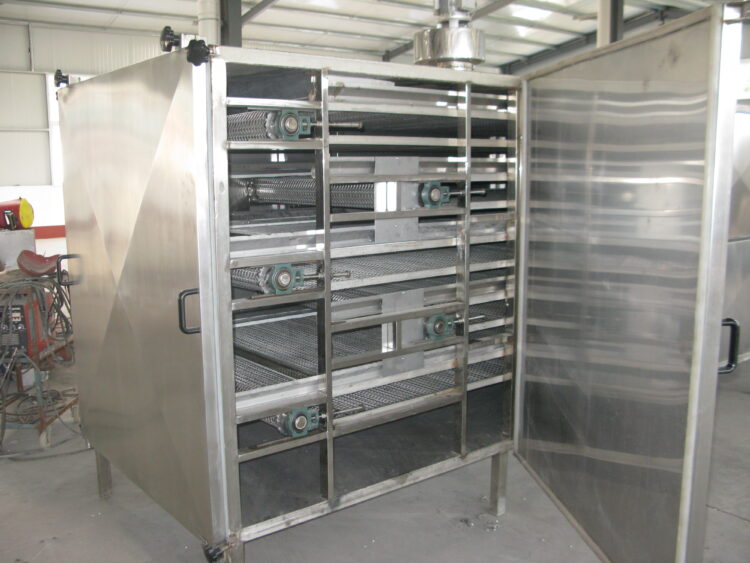MAP has the potential to increase the shelf life of a number of dairy products. These include fat-filled milk powders, cheeses and fat spreads. In general, these products spoil due to the development of oxidative rancidity in the case of powders and/or the growth of microorganisms, particularly yeasts and moulds, in the case of cheese.
Whole milk powder is particularly susceptible to the development of off- flavours due to fat oxidation. Commercially, the air is removed under vacuum and replaced with 100% N2 or N2/CO2 mixes and the powder is hermetically sealed in metal cans. Due to the spray drying process, air tends to be absorbed inside the powder particles and will diffuse into the container over a period of ten days or so. This typically will raise the residual headspace O2 content to 1–5% or higher (Evans, Mullan and Pearce, unpublished results). Because some markets require product with low levels of residual O2 (<1%), some manufacturers re-pack the cans after ten days of storage. Obviously, this is both expensive and inconvenient. We have found that use of N2/CO2 mixes (Evans, Mullan and Pearce, unpublished results) can be helpful. Use of O2 scavenging may also be useful. Refer to Chapter 9 for a more detailed discussion of O2 scavengers.
English territorial cheeses, e.g. Cheddar, have traditionally been vacuum packed. Increasingly MAP is being used with high CO2 concentration gas mixes. This has the advantage of obtaining a low residual O2 content and a tight pack due to the CO2 going into solution. It is important to balance this process using the correct N2 level in the gas mix so as to avoid excessive pressure being put on the pack seal.
Use of N2/CO2 atmospheres has significant potential for extending the shelf life of cottage cheese. The cottage cheese is a high-moisture, low-fat product that is susceptible to a number of spoilage organisms including Pseudomonas spp. Use of gas mixtures containing 40% CO2 balanced with 60% N2 can increase the shelf life significantly
[SECTION B MAIN FOOD TYPES, Michael Mullan and Derek McDowell]



